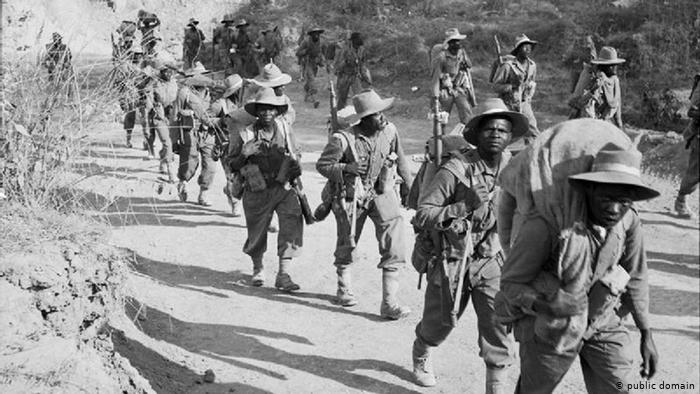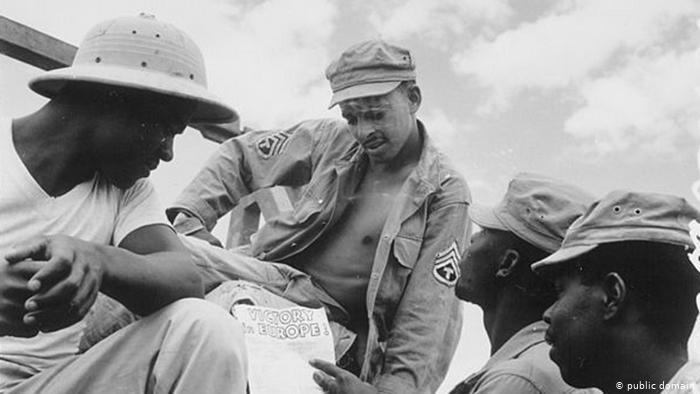Almost one million African soldiers fought in the Second World War for the European state’s that ruled over them. Thousands were killed. After the war, African soldiers were deliberately removed from historical narratives of the war effort by European powers in order to preserve and uphold colonial rule.
Surviving African colonial soldiers returned to find demobilisation strategies that sought to limit social and economic development in their countries. These strategies aimed to curb large-scale societal changes that could be ignited in colonial Africa as a result of the global wartime environment. However, returning soldiers were not keen to revert to subservience after their eye-opening experiences at war.

After fighting side-by-side with their colonisers in a brutal war very few among them truly understood, African soldiers had a new outlook on those that ruled over them. As Filmmaker and former colonial soldier Ousmane Sembene frankly put it, “in war, we saw the white men naked and we have not forgotten that picture”.
Whether they were in battle on the front lines or captured prisoners of war, the African soldiers were up and close with their European counterparts. They observed the reality of European life and witnessed “their so-called rulers from Europe lying in mud and filth, they saw them suffering and dying”.
Colonial societies had also changed. War had boosted the local economies – Africans that had previously been forced into unskilled subsistence and were suddenly ushered into skilled work for the war effort. This mass education of Africans gave colonial societies a new life that didn’t involve the suppression of the pre-war colonial structure.
Furthermore, many African soldiers were encouraged to enlist by promises of guaranteed employment and further education. These promises didn’t materialise upon their return. Many were up against colonial authorities’ efforts to force Africans back to their pre-war status, away from the mainstream workforce they desired to enter.
Nevertheless, years of war had diverted the attention of colonial authorities and left independence movements across Africa space to gain momentum. The Atlantic Charter, issued in 1941 by the United States and Britain set out their joint vision for a post-war world. The declaration was in line with American view of democracy, promoting self-determination. This charter gave more hope to Africans yearning for independence and fuelled their causes.
This African awakening was not well-received by colonial powers that be, which led to long tug of war between pro-independence Africans and colonial authorities. It took considerable bloodshed and increasing pressure from the international community before independence was gradually achieved across the continent.

